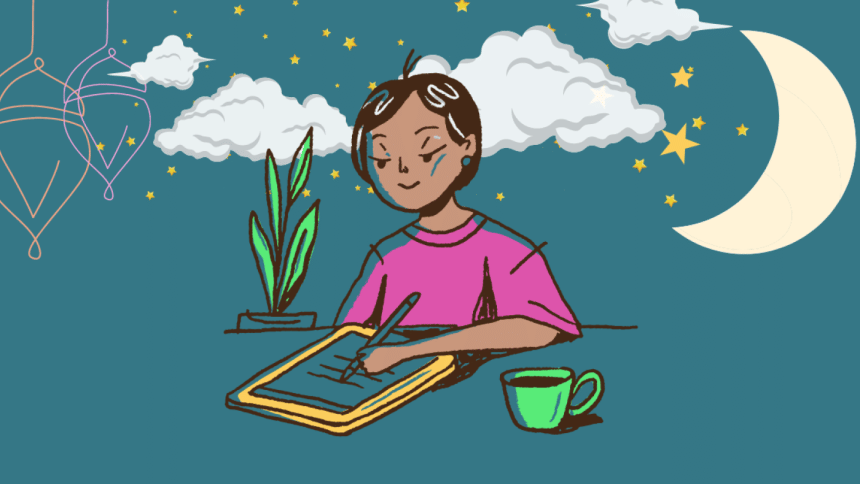Finding ‘Rahmah’ during Ramadan, against the odds

Life in Dhaka provides a thousand reasons to feel hopeless and frustrated. The air is getting increasingly unbreathable, the traffic jams are interminable, and if the rising numbers of cholera and diarrhoea patients are any indication, the water is also undrinkable. All of that and more make it so easy to forget that there are things that are getting better. Case in point: this is the first Ramadan since the start of the pandemic, that we won't be spending under a Covid-induced lockdown. And that's not nothing.
Of course, things are getting hairy. The aforementioned traffic tailbacks are already the stuff of nightmares without bringing the pre-iftar rush into the equation. The inevitable price hikes that come with this season are walloping the wallets of anyone in and below the middle-income bracket. The brief respite that parents of school-going children got, from easing their kids back into in-person classes, has once again turned into turmoil.
Even so, we are now witness to the return of mass taraweeh gatherings, families can once again unite over iftar, and businesses that had taken a hit the past two years can think of rebuilding again. Even though the days have been hot and muggy, the evenings come with a temperate breeze to cool us down. Is that not a shining example of Rahmah?
I don't consider myself very religious. I am what Almas Apa, a respected family friend, would call an "out-of-practice Muslim." Even so, Ramadan holds a special place in my life. I was staring down the barrel of a dark depression back in 2016, when a spark of inspiration during the eve of the first day of Ramadan eventually led to an artistic breakthrough that would become the "Sehri Tales," an annual creativity challenge participated in by thousands over the years, from around the world.
There is something to be said for the spiritual cleansing that comes from a month of prayers and fasting. The deeper you go into it, whether through namaz, or meditation and self-reflection, it forces you to still your mind. When you combine this with writing therapy, a tool used by mental health professionals to help their patients track their moods, boost productivity and articulate their feelings, you tap into hidden wells of inspiration, and might end up surprising yourself. I know I did, and if their testimonials are anything to go by, so have the participants of the annual "Sehri Tales" challenge.
Ramadan means a lot of different things to different people. The devout celebrate the deeper spiritual connection. Those on a journey of self-growth find it a good opportunity to develop some positive habits (prayers, charity, self-restraint) and to do away with some less desirable ones (substance abuse of varying degrees, for example). There will be roadblocks around the way. It isn't easy; it wasn't ever supposed to be, but every Ramadan is an opportunity to take stock of one's life and remember the blessings we are given.
The Ramadan of 2016 started with so much hope, but ended with the Holey Artisan attack. For the next few months, there was a shadow of fear over the city, which even crept up during Ramadan the following year, but eventually, we pulled through. The Ramadan of 2020 was unsettling and harrowing, with rising infection rates and the news full of frightening numbers. We have hopefully put that behind us, too.
As we enter a brand new holy month, here's hoping we can take the opportunities that come with it, to make good choices—whatever they may be.
Sabrina Fatma Ahmad is a journalist, writer, and founder of Sehri Tales.

 For all latest news, follow The Daily Star's Google News channel.
For all latest news, follow The Daily Star's Google News channel. 



Comments